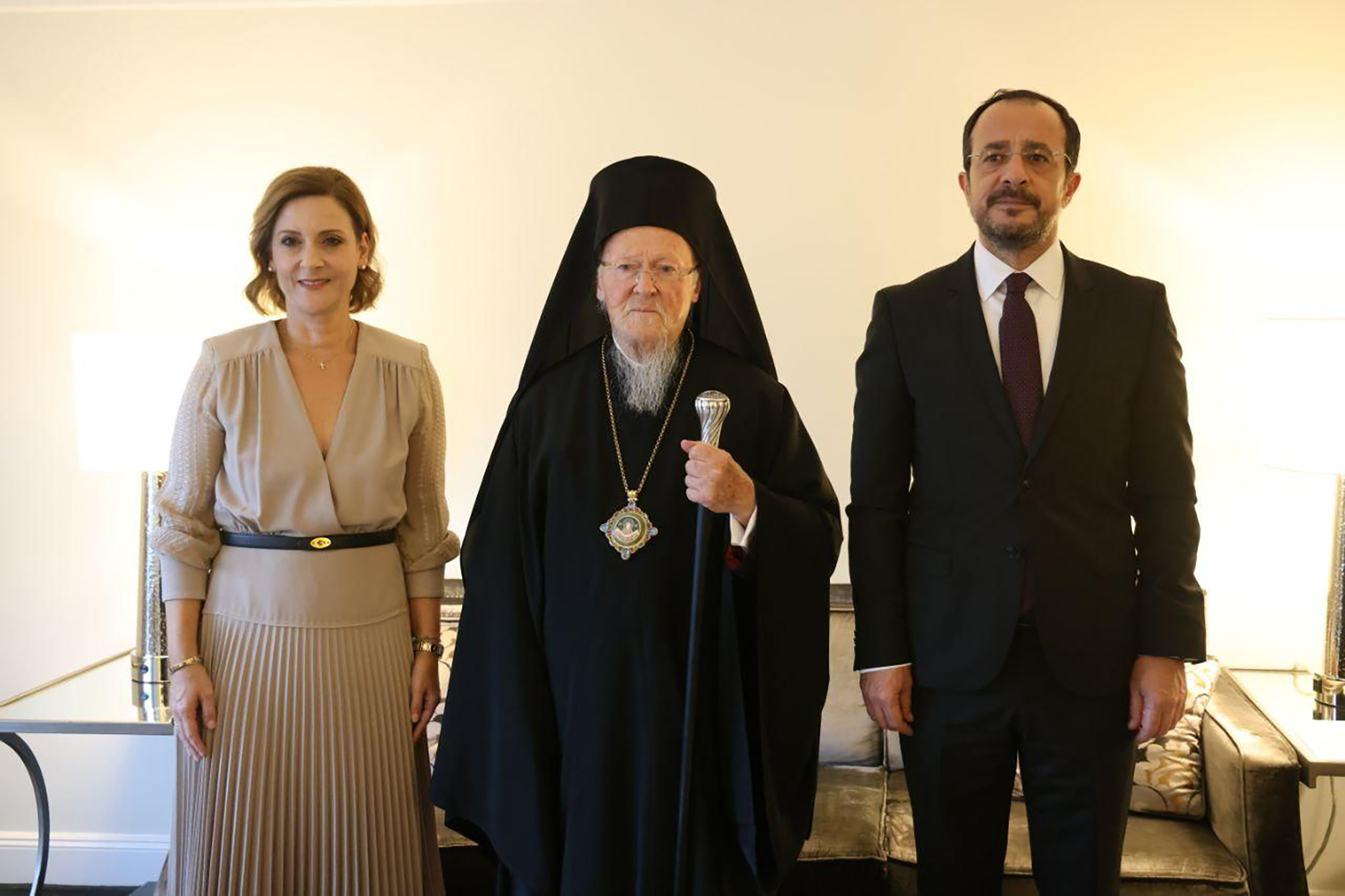President Nikos Christodoulides met the Ecumenical patriarch of Constantinople, Bartholemew, on the sidelines of the United Nations general assembly in New York.
During the meeting, Christodoulides informed Bartholemew about the latest developments on the Cyprus problem, and “reiterated the determination and commitment of the Republic of Cyprus to achieve a viable and functional solution”.
In addition, the presidential palace said that “the longstanding ties between the ecumenical patriarchate and the church of Cyprus, which constitute a point of reference for Cypriot Hellenism, were also underlined”.
It added that “this timeless relationship was highlighted … during the meeting”, and that “mutual appreciation was confirmed, and the common commitment to values which unite the ecumenical throne with Cyprus and its people was underlined”.
Cyprus will likely be on the agenda of the next session of the ecumenical patriarchate, which has been scheduled for next month, with the deposed Paphos bishop Tychikos set to appeal against his dismissal.
In September, church spokesman Christakis Efstathiou had explained that after Tychikos’ appearance at the ecumenical patriarchate, a decision on his appeal will be made. If the appeal is accepted, he said, “it means Tychikos’ request is satisfied”, but if it is rejected, “it means that the decisions of the Holy Synod of the Church of Cyprus on this issue are ratified”.
The Holy Synod had on May 22 voted by a ten to six margin to ratify Tychikos’ removal from his official status after he was charged with various breaches of church protocol, including the showcasing an icon of a saint not canonised by the Church.
Church secretary Georgios Christodoulou said at the time that “the Holy Synod decided that the aforementioned hierarchy shall remain a bishop of the Church of Cyprus and a member of the Holy Synod,” understood to mean he may retain the title, but that he has been relieved of his administrative duties.
Archbishop Georgios had previously clashed with Tychikos, notably over the latter’s refusal to allow the relic of Apostle Paul’s skull to be brought from the Vatican City to Cyprus on the principle that the late Pope Francis was “a heretic”.
Tychikos had also faced accusations of racism in the past, having once told a congregation to “avoid food prepared by contaminated people” and having refused to conduct marriages between members of the church who were not of Greek origin.
The day after his dismissal, Paphos mayor Phedonas Phedonos had said his municipality had had to suffer “trying and unbecoming behaviours” on Tychikos’ part for years.
Phedonos said Tychikos had taken the municipality to court “without the courtesy of informing” them, and that he had obstructed all communication between the municipality and the bishopric by locking offices and refusing to answer telephone calls.
The reason given for the stonewalling was a “spiritual retreat”, Phedonos added.






Click here to change your cookie preferences